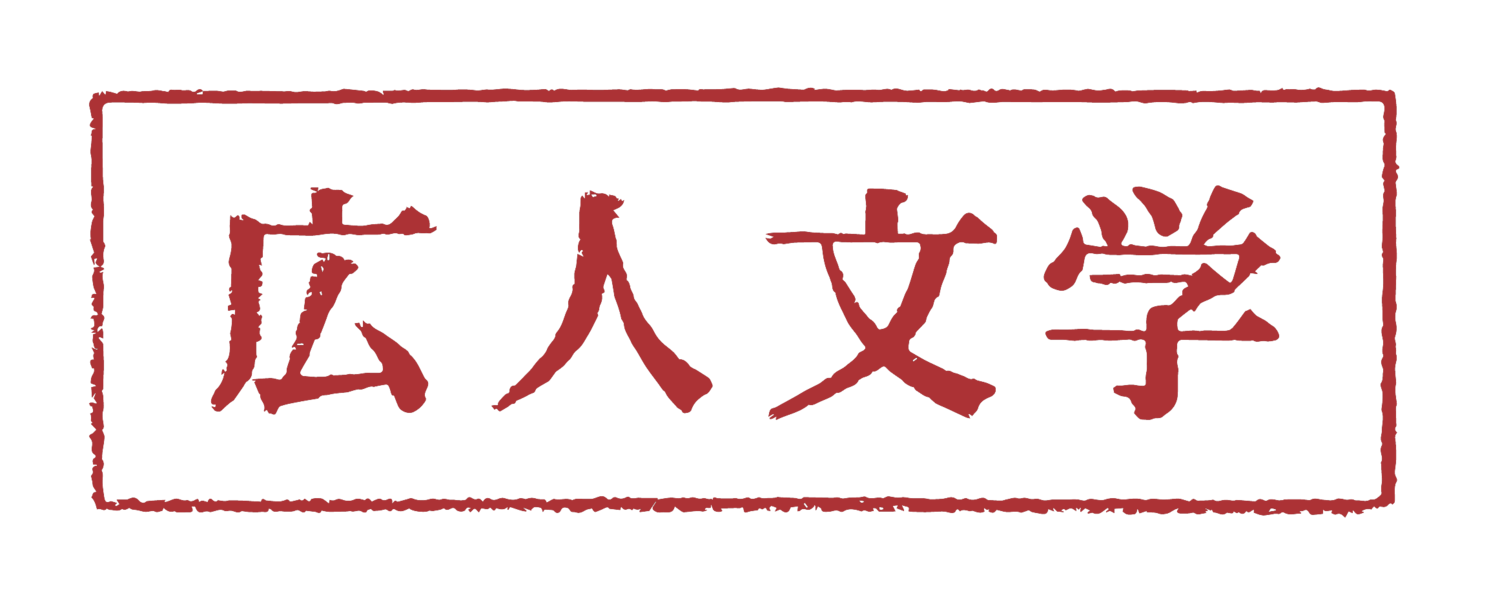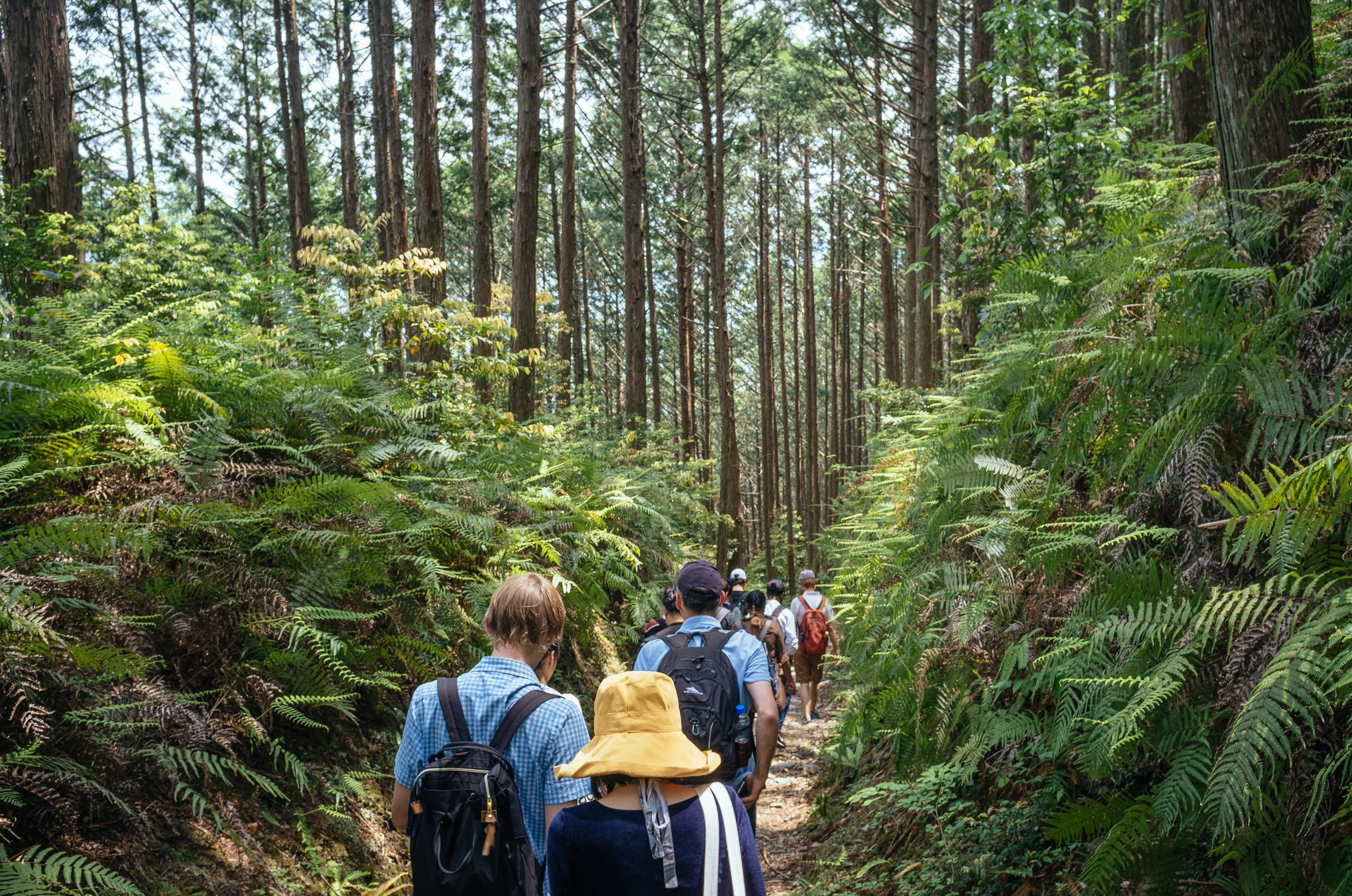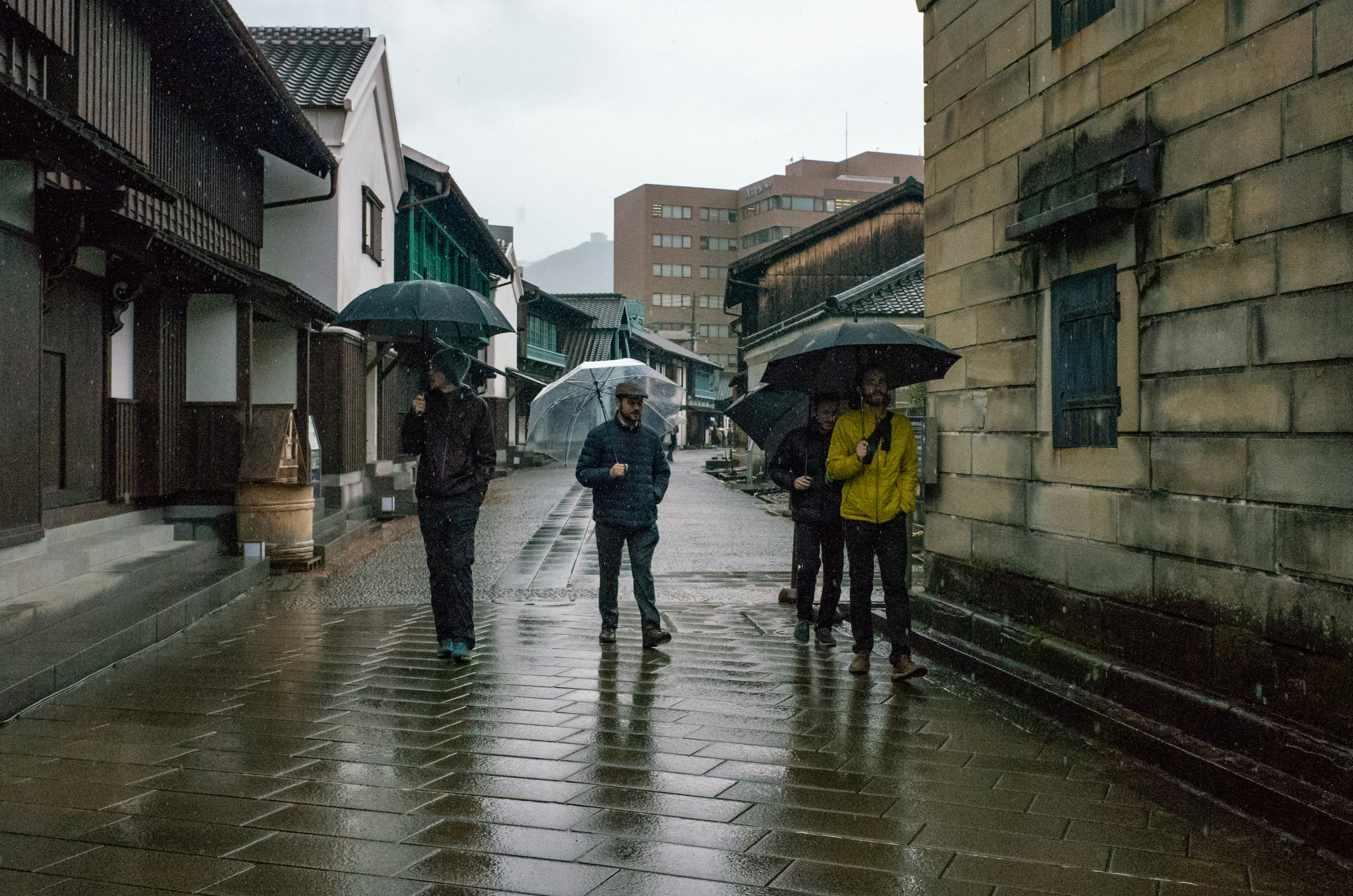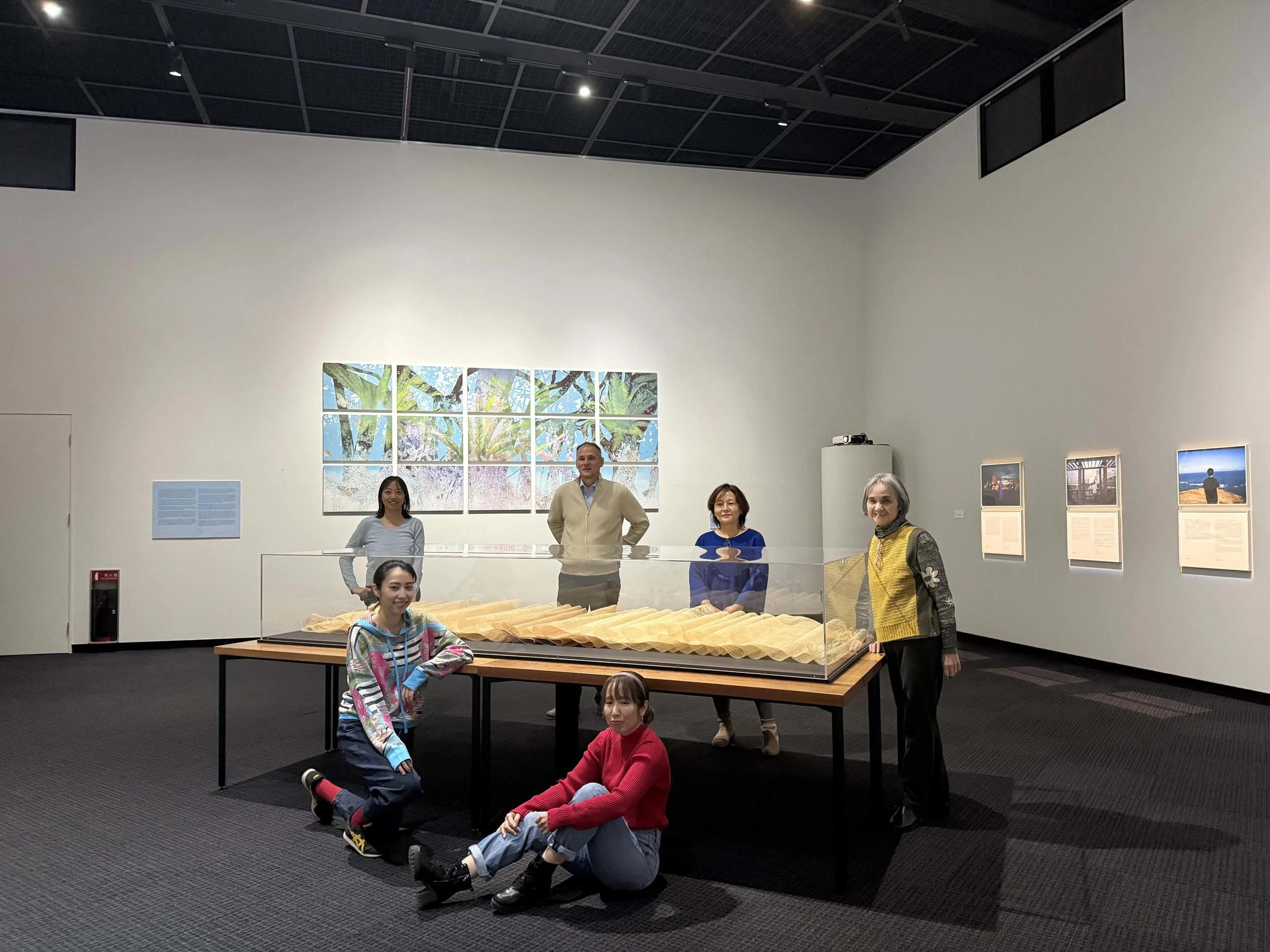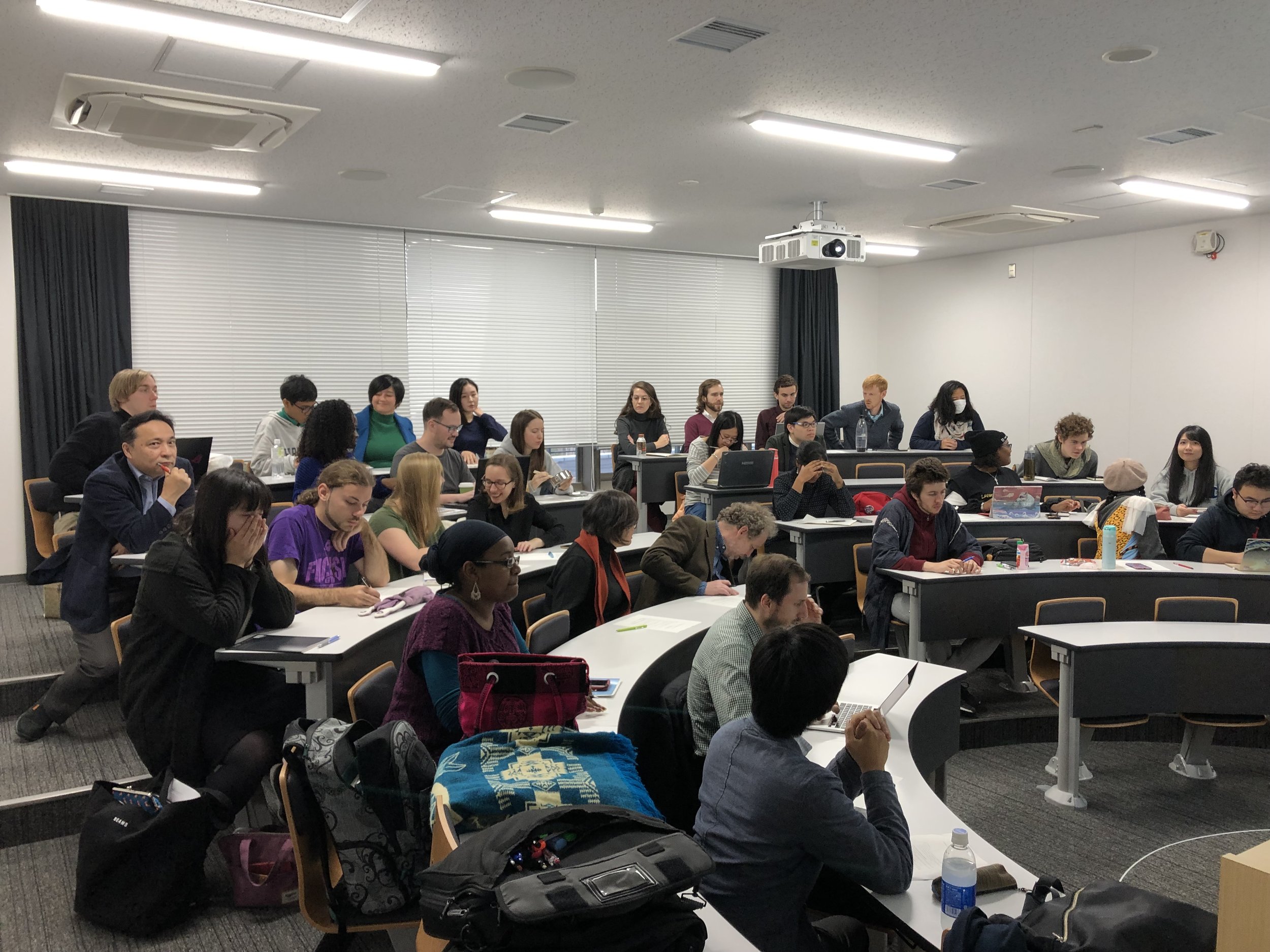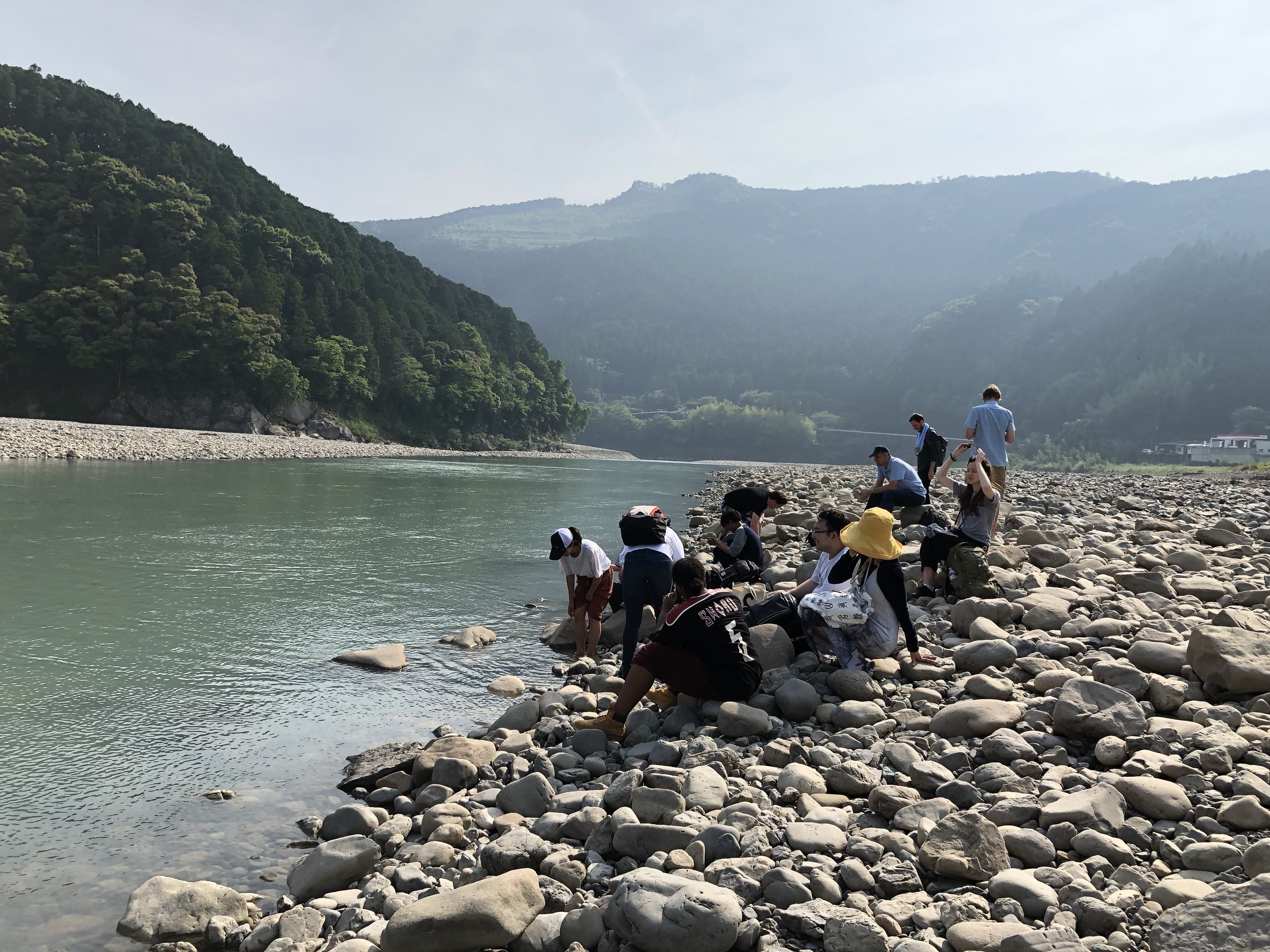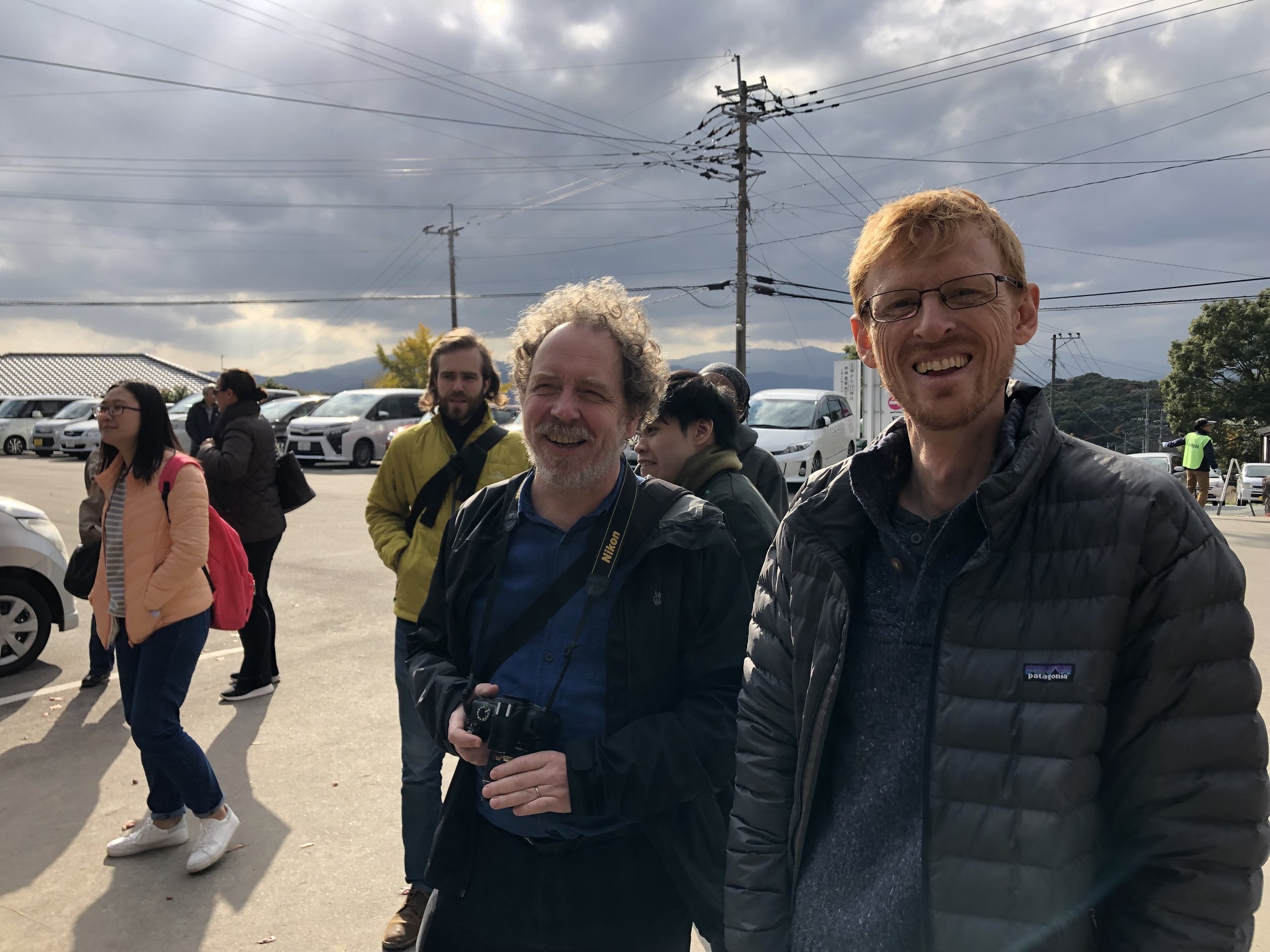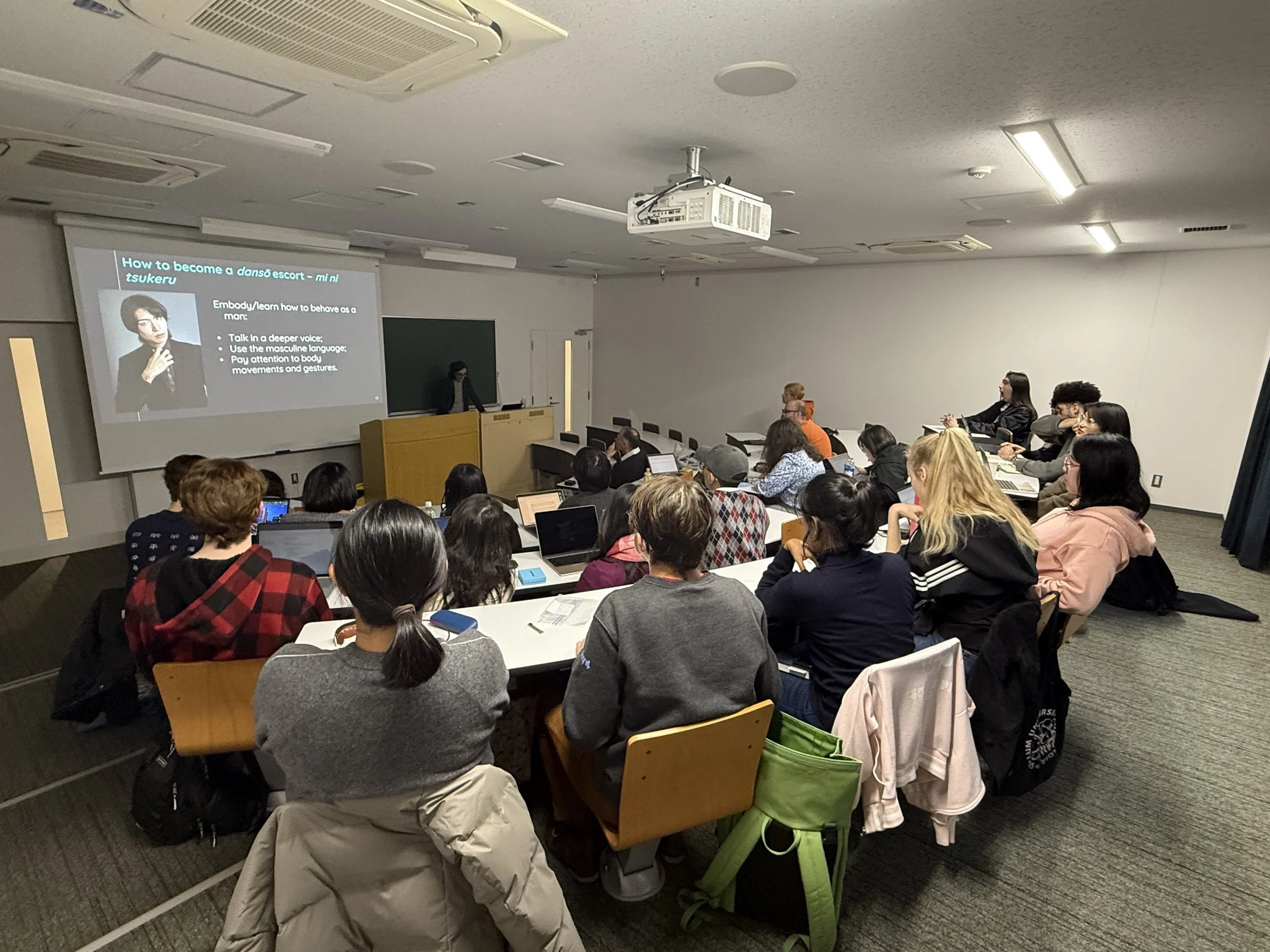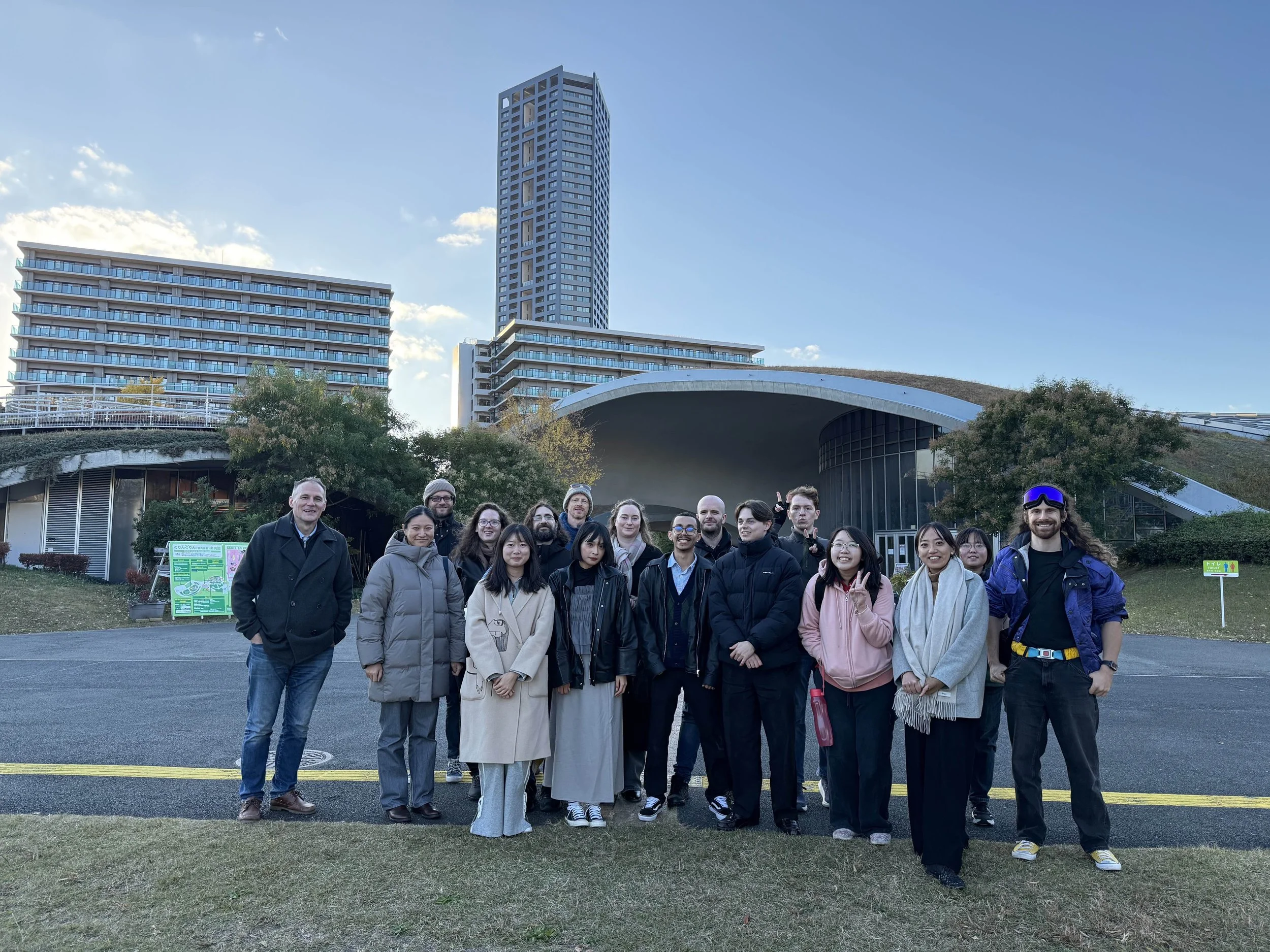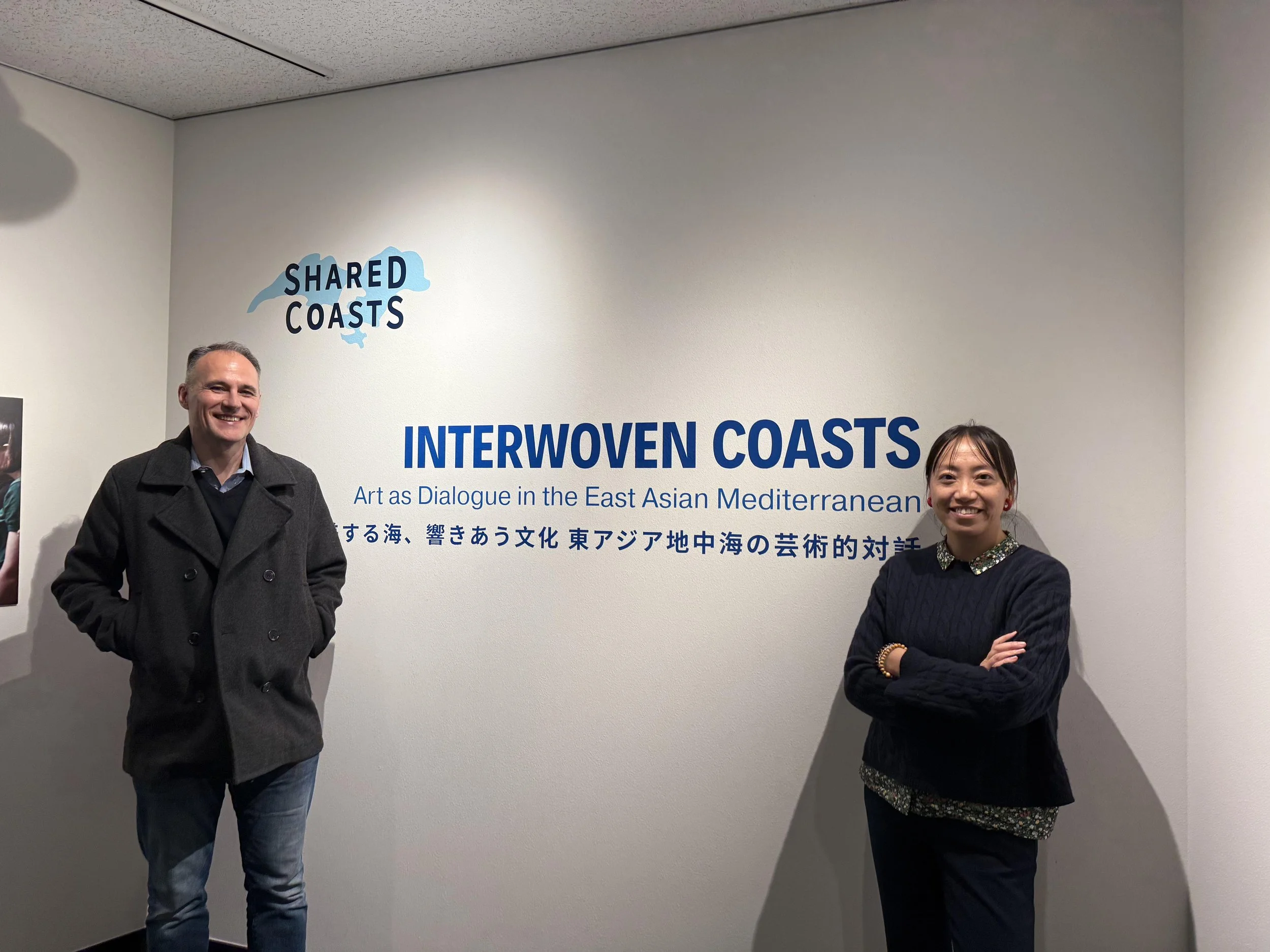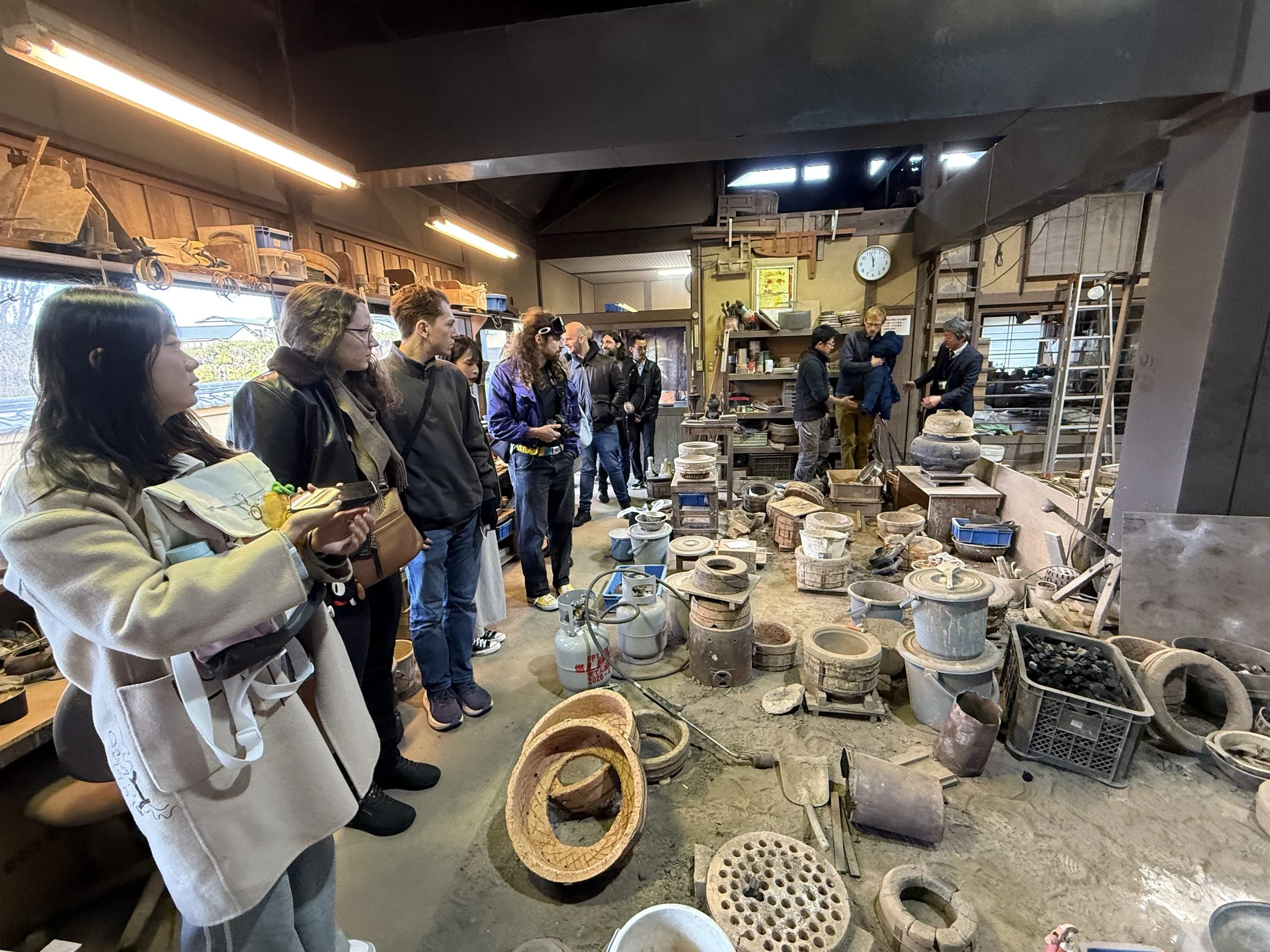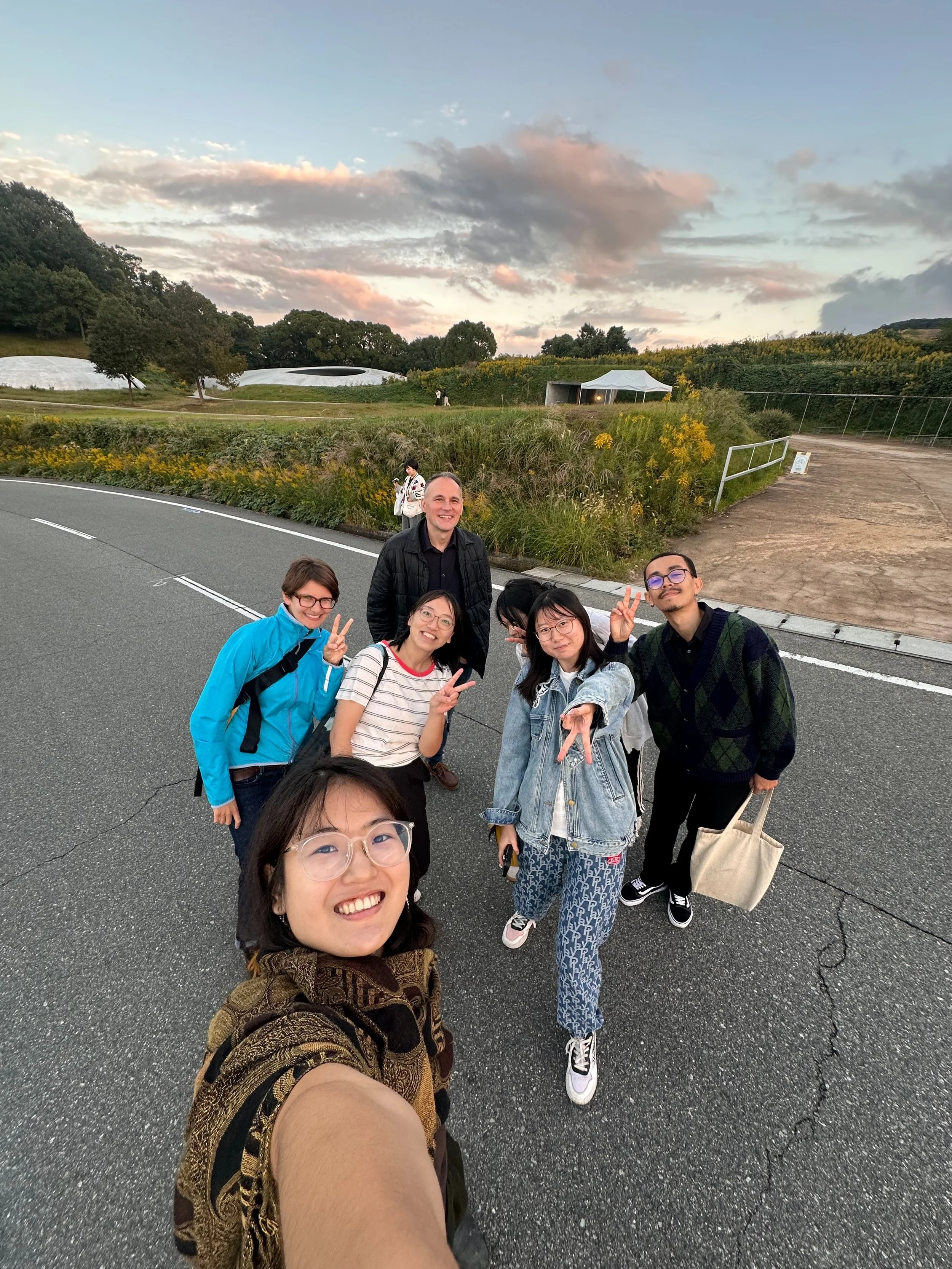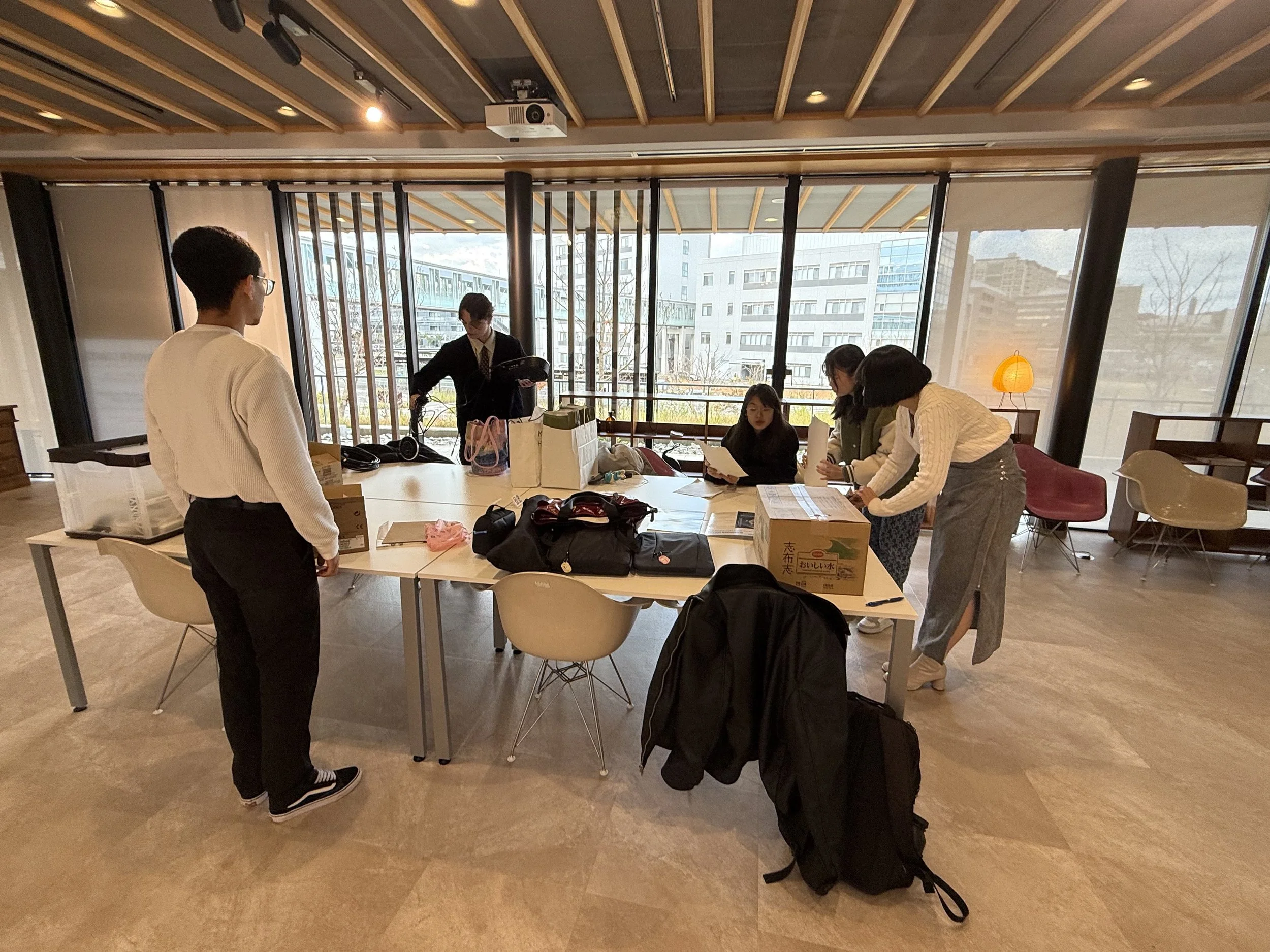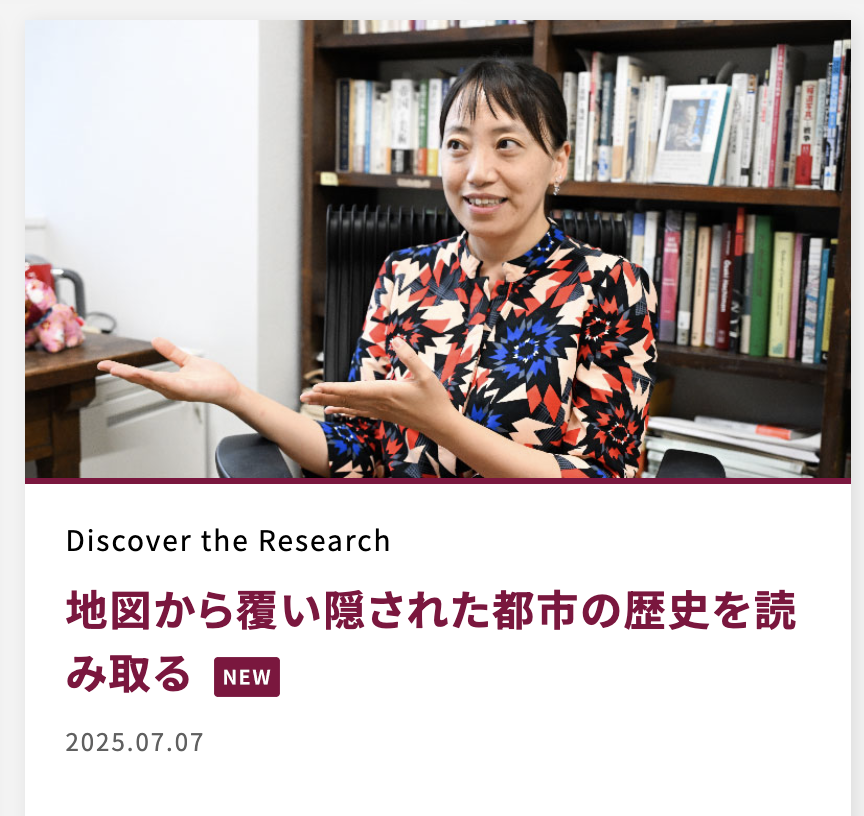The International Master's Program (IMAP) in Japanese Humanities was founded in 2011 and the accompanying International Doctorate (IDOC) added in 2017. At Kyūdai, the programs are known as Kōjinbungaku 広人文学 (or the “broad study of [Japanese] humanities”). Program faculty specialize in the fields of Japanese history, art history and visual culture, literature, premodern languages, religion, and other facets of the humanities.
IMAP and IDOC are MEXT-certified and enroll a select group of international and Japanese students. Both programs are characterized by closely supervised instruction, small seminars, and field excursions. Each culminate in the completion of a thesis (IMAP) or dissertation (IDOC).
Graduate seminars emphasize premodern Japan and its relationship to East Asia; these are supplemented by courses offered by affiliated and guest faculty in topics ranging from modern Japanese history to archaeology. There are also courses in field-specific methodologies, research methods, and premodern languages (bungo and kanbun). All students enjoy full access to the educational strengths and facilities of a world-class Japanese university and benefit from the rich array of academic resources it offers.
IMAP has attracted students from all over the world, including the UK, Belgium, Netherlands, Spain, Italy, China, Singapore, Jamaica, Bahrain, Indonesia, Brazil, Germany, Sri Lanka, Palestine, Hong Kong, Australia, Iceland, Argentina, Slovakia, Lithuania, Latvia, Mexico, the USA, and from within Japan. As Japanese students study alongside international students, non-native English speakers hone their skills in academic English writing and reading, while others enhance their Japanese language skills. MA recipients might continue their study at the PhD level in Japan and overseas, or secure employment in journalism, public service, teaching and research positions, tourism, and information technology. PhD candidates will typically seek academic or research positions.
A world Map showing home countries of IMAP students and alumni (green Pins) and faculty (blue).
Visiting faculty offer intensive courses or special lectures. Scholars visiting from institutions in the USA, the UK, Europe, Asia, and Australia rank among world experts in their fields. They are chosen to enhance the curriculum or to support the research pursued by a particular student. Lectures and courses frequently include field trips to historic sites, museums, art exhibitions, and other cultural activities. These may be in Fukuoka or nearby Dazaifu, or we may travel to more distant destinations. Excursions or multi-day trips have included the visit to the Seitouchi Triennale 2025; art treasures in temples and museums in Kyoto and Nara; sites of cultural memories in Okinawa; ceramics studios in Fukuoka, Karatsu, and Arita; historical buildings in Mojikō; Nagoya castle in Karatsu; the study of history and sites on the islands of Ōshima and Tsushima; temples and shrines on the Kunisaki peninsula; Usa Hachimangū shrine; Hosokawa clan history in Kumamoto; Nagasaki with visits to the Atomic Bomb Museum, Ōbaku Zen temples, Dejima, and Japan’s Christian legacy; and many other places in Kyushu or nearby regions.
The IMAP / IDOC faculty shares responsibility with the Faculty of Humanities for the English-language Journal of Asian Humanities at Kyushu University (JAH-Q). JAH-Q is a double-blind peer-reviewed free open-access journal established in 2015 with volume one published in 2016.
